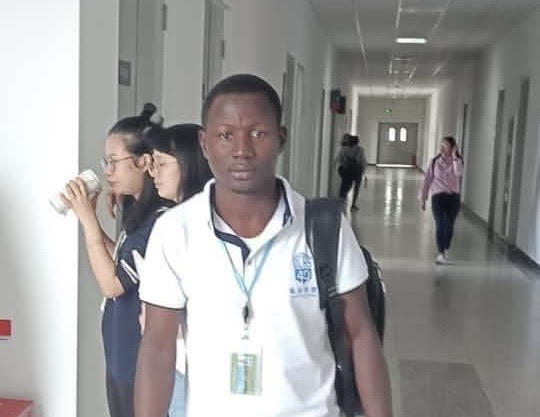A Nigerian researcher, Innocent Joseph, has gained international recognition following his groundbreaking computational study on two-dimensional (2D) materials during a research fellowship at the National Center for Nanoscience and Technology, Chinese Academy of Sciences (UCAS), Beijing.
Joseph’s work focused on semiconductor van der Waals (vdW) heterostructures—ultrathin materials formed by stacking individual atomic layers. He explored how subtle rotations between these layers affect their electronic and optoelectronic properties. Using advanced first-principles computational modeling, he uncovered critical mechanisms that determine the performance of such materials in next-generation technologies.
In an interview with Tribune Online, Joseph explained the significance of his findings: “I investigated a boron phosphide–molybdenum disulfide heterostructure and discovered that by adjusting the interlayer twist angles between 0° and 60°, we can switch the material’s band alignment from type I to type II,” he said. “This ability to tune electronic properties opens up new avenues for energy harvesting and optoelectronic device design.”
Band alignment in semiconductor materials plays a crucial role in how materials respond to light and electric fields. According to Joseph, “Type I alignment is perfect for light-emitting applications such as LEDs, while type II alignment enhances charge separation, making it more suitable for solar energy devices and photocatalysis.” His findings, published in Computational Materials Science (Elsevier, 2021), have already started shaping experimental approaches in material design.
Joseph’s work has not gone unnoticed. His contributions to the field earned him two consecutive Research Excellence Awards from the University of Chinese Academy of Sciences—a rare feat among foreign researchers. “These awards are a testament to the practical impact of computational research in advancing materials innovation,” he said.
With a growing reputation in computational materials science, particularly in semiconductor low-dimensional materials, Joseph is now pushing the boundaries of theoretical and applied research. In 2022, he began his Ph.D. in Chemistry at the University of Nebraska–Lincoln, where he is integrating computational approaches with hands-on semiconductor material synthesis and characterization.
“My goal is to create high-performance semiconductor materials that are both energy-efficient and scalable,” Joseph said. “We are looking at solutions that can revolutionize nanoelectronic devices and renewable energy technologies by enhancing their functionality at the atomic level.”
Experts in the field have praised Joseph’s methodology. A senior professor in nanotechnology at UCAS, who requested anonymity, noted: “Joseph’s work demonstrates how computational tools can predict material behavior with incredible accuracy. His approach is guiding experimental researchers worldwide.”
Looking ahead, Joseph said he is driven by a vision to contribute to global sustainability through scientific innovation. “We need materials that are smarter, faster, and more environmentally friendly. Computational approaches lay the roadmap for experimental realization,” he added.
As the world races toward cleaner energy and smarter electronics, researchers like Innocent Joseph are helping lay the foundation for a future powered by advanced semiconductor materials.
WATCH TOP VIDEOS FROM NIGERIAN TRIBUNE TV
- Let’s Talk About SELF-AWARENESS
- Is Your Confidence Mistaken for Pride? Let’s talk about it
- Is Etiquette About Perfection…Or Just Not Being Rude?
- Top Psychologist Reveal 3 Signs You’re Struggling With Imposter Syndrome
- Do You Pick Up Work-Related Calls at Midnight or Never? Let’s Talk About Boundaries






